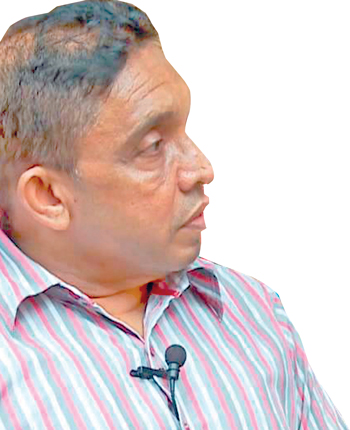27 May 2016 - {{hitsCtrl.values.hits}}
In May 2015, the standard rate of value-added tax (VAT) jumped from 12 percent to 15 percent. The Sri Lankan economy will thus have to adjust to this higher rate but what are some of the possible macroeconomic consequences? everjobs spoke to University of Colombo Professor in Economics Sirimal Abeyratne recently about whether the rise in VAT is a tax on jobs.

What’s your take on the recent hike in VAT?
A rise in VAT represents part of a policy of ‘fiscal tightening’ by the government. They have decided to use a mixture of government spending cuts and higher taxes to reduce the scale of the budget deficit, in the backdrop of annual loan installments being greater than the annual tax revenues.
One argument is that strong action now to cut the deficit will bring macroeconomic dividends in the future because it will limit and eventually reduce the size of the national debt mountain and cut the need for further tax hikes in the future. However, the current tax revision is for facing the overburdened debt rather than achieving fiscal discipline.
Trade unions and the politicians claim that VAT is a regressive tax, meaning that the proportion of an individual’s income spent on VAT falls as one goes up the income scale. What is your opinion on that?
Technically speaking, it is not regressive. Everyone pays VAT according the same rate regardless of their income levels. But, it is understandable that those who spend more will pay more, but those who spend less will pay less, in value terms. Therefore, poor who spend less will pay less, but rich who spend more will pay more.
Informal or black-market economic activities go unrecorded so that one could also argue that excessive taxes would encourage such transactions.
Is the rise in VAT a tax on jobs?
It depends on how the increase in VAT affects the volume of transactions or at the end of the day the volume of consumer spending. As taxes usually affect these activities adversely, the rise of job creation may not be as great as previously anticipated. If consumer spending is expected to grow less quickly than it used to be in the coming years, many retailers will feel the pinch and jobs are at risk.
Overall the gross development product (GDP) growth and macroeconomic performance are going to be less than satisfactory for the coming years; the job creation should also be in line with that.
Are there any better alternatives to this tax hike?
Suddenly you realize that you have borrowed and spent more than you could afford to and you have to pay your loan installment, which is more than your salary, what would you do? The country is in a situation as such and needs to find instant money from further borrowings and more taxes. I guess this is unavoidable and we knew where we were going in.
Alternatives are little longer than expected. While we admit that ad hoc measures would do what they are supposed to do, we better focus on increasing economic activities and implementing a more efficient tax collection system. Lower tax rates, widening the tax base and simplifying the taxpaying and collecting system should be the way forward if we’re to target better fiscal management in the future.
I hope that a stronger recovery in Sri Lankan exports of goods and services and a pickup in business capital spending will help to offset slower consumer spending and encourage people to save a little more to pay off some of their existing debts.
But this anticipated rebalancing of the economy depends on the strength of the world economy and also a possible depreciation of the rupee against the US dollar - which is uncertain.
24 Nov 2024 4 hours ago
24 Nov 2024 7 hours ago
24 Nov 2024 7 hours ago
24 Nov 2024 8 hours ago